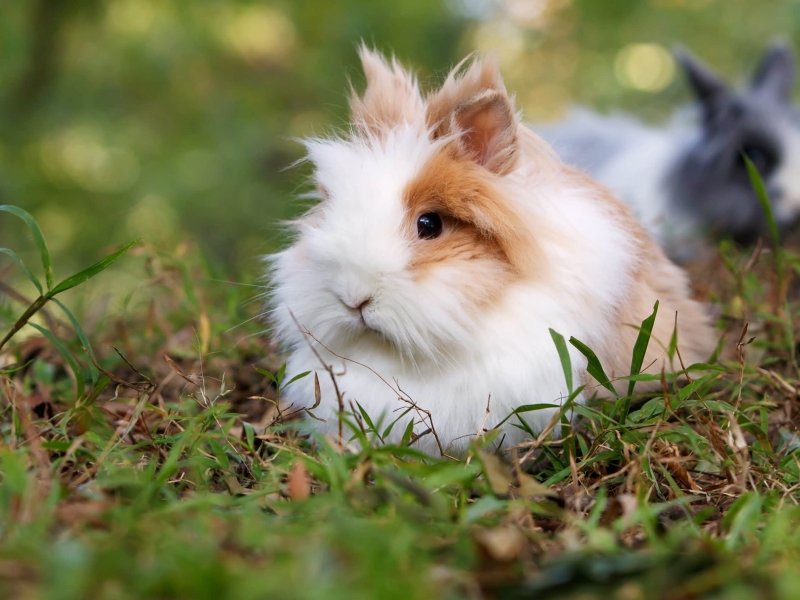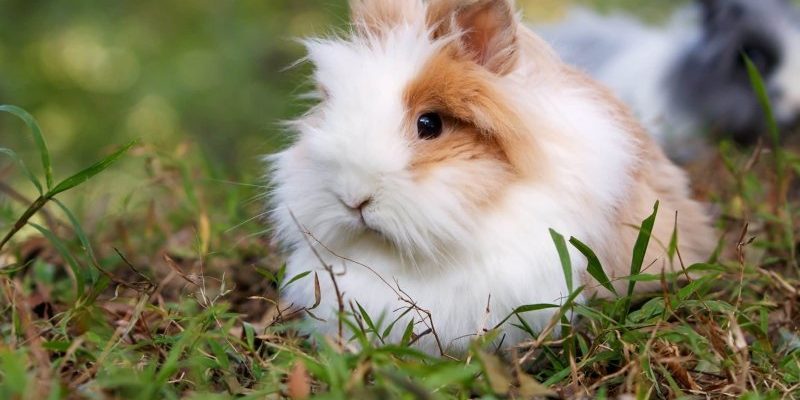
In this article, we’ll explore what it really means to have a Lionhead rabbit as a pet. Think of it like considering whether to adopt a new friend. You’ll want to know what they like, how they behave, and what special care they might need. So, grab a cup of coffee, and let’s dive into the delightful world of Lionhead rabbits!
What Makes Lionhead Rabbits Unique?
Lionhead rabbits are instantly recognizable thanks to their fluffy manes that resemble a lion’s mane—hence the name. This breed results from a cross between the Swiss Fox and the Netherland Dwarf. Their small size and captivating appearance make them appealing to many pet owners.
These rabbits typically weigh around 3 to 4 pounds, making them relatively easy to handle. If you’ve ever wished for a cuddly companion that fits snugly in your lap, then the Lionhead might just be a perfect match. But looks aren’t everything! It’s essential to understand their personalities.
Another unique trait about Lionhead rabbits is their playful and curious nature. They enjoy exploring their surroundings and can be quite social with their human families. This rabbit breed often enjoys interaction and can even learn tricks with the right motivation.
Pros of Having a Lionhead Rabbit
If you’re considering a Lionhead rabbit as your next pet, let’s start with the positive side of things! Here are some significant advantages of having one.
- Affectionate Nature: Lionhead rabbits are known for their affectionate behavior. They often bond closely with their owners and can be quite snuggly. Imagine curling up on the couch with your fluffy buddy by your side.
- Low Maintenance: Compared to dogs, rabbits need less maintenance in terms of daily exercise. A well-structured playtime in a safe area of your home is usually enough for them to get their energy out.
- Quiet Companions: If you live in an apartment or have close neighbors, you’ll appreciate that rabbits are generally quiet. They won’t bark or meow at night, making them excellent companions for peaceful settings.
- Long Lifespan: With proper care, Lionhead rabbits can live between 7 to 10 years. This means plenty of time to enjoy your furry friend’s company!
Having a Lionhead rabbit can bring joy to your life, and their unique personalities create a warm, loving bond. However, it’s always good to consider the flip side as well.
Cons of Having a Lionhead Rabbit
While Lionhead rabbits have plenty of charm, they also come with some challenges. Let’s explore a few cons you might face as a rabbit owner.
- Grooming Needs: Their fluffy manes require regular grooming to prevent matting. Daily brushing might become part of your routine, especially during shedding seasons.
- Territory and Space: Lionhead rabbits need room to hop and play. If you have a smaller living space, you’ll need to create a safe area where they can stretch their legs and explore, which can take planning.
- Dietary Needs: A proper diet is crucial for your rabbit’s health. They need hay, fresh veggies, and pellets. Understanding their dietary requirements can be a bit daunting for new pet owners.
- Socialization Requirements: Lionhead rabbits thrive on social interaction. If left alone for long periods, they can become bored or even depressed. This means they might not be the best choice for someone who’s away from home often.
Before rushing to adopt a Lionhead rabbit, it’s essential to consider these potential challenges. Understanding the commitment can help you prepare for a successful pet-owner relationship.
Are Lionhead Rabbits Suitable for Families?
You might wonder whether a Lionhead rabbit could fit into your family dynamic. The good news is that these rabbits are generally gentle and friendly, making them a suitable choice for families with kids. However, there are some things to think about.
First, supervision is key. While Lionhead rabbits can be playful, they’re also delicate creatures. Small children should be taught how to handle them gently to avoid any accidental injuries. It’s important to create an environment where both the rabbit and the kids can play safely.
Second, consider your family’s schedule. If you have busy days filled with activities, you’ll want to ensure that someone is available to interact with your rabbit regularly. Lionhead rabbits thrive on companionship, and being left alone for an extended time might not be ideal.
Lastly, introducing a rabbit to your family might take some adjustment. Rabbits can be timid, so giving them a quiet space to acclimate is important, especially during the first few days at home.
Training Your Lionhead Rabbit
Training your Lionhead rabbit may sound tricky, but it can be a rewarding experience! Just like dogs, rabbits can learn simple commands and tricks. Here’s how you can start.
First, establish a positive association with training sessions. Use treats your rabbit loves, like small pieces of carrot or special rabbit treats. When your rabbit successfully performs a task, reward them immediately. This will help them learn faster and associate the action with a positive experience.
You can start with basic commands, like “come” or “sit.” Use a gentle voice and be patient—a strong bond with your rabbit will develop over time as you train together. Remember, rabbits have their own way of learning, so it might take a few tries before they catch on!
Lastly, keep training sessions short and fun. A few minutes a day is usually enough. This approach helps prevent boredom for both you and your rabbit, keeping training enjoyable.
How to Provide the Best Care for Your Lionhead Rabbit
Providing excellent care for your Lionhead rabbit includes understanding their environment, diet, and health care. Here are key pointers to keep in mind.
Housing: Lionhead rabbits need a safe and spacious area to live. A large rabbit hutch or a designated room can work well. Make sure the space is free of hazards like electrical cords or small objects that could be swallowed.
Diet: Their diet should primarily consist of hay, which aids their digestion. Fresh veggies like kale and parsley should also be included, along with rabbit pellets. Make sure to research safe foods for rabbits to keep them healthy.
Health Care: Regular veterinary check-ups are crucial to ensure your rabbit stays healthy. Lionhead rabbits can be prone to certain health issues, so keeping an eye out for any signs of illness is essential.
Being a responsible pet owner means committing to your Lionhead rabbit’s well-being. The joy they bring is well worth the effort!
Final Thoughts on Owning a Lionhead Rabbit
So, is the Lionhead rabbit a good pet for you? Ultimately, it depends on your lifestyle and commitment to caring for a small, lively creature. If you’re ready for a playful, affectionate companion that brings joy to your daily life, a Lionhead rabbit could be a fantastic choice.
Like any pet, they require dedication, but the loving bond you’ll form is incredibly rewarding. You’ll spend years enjoying their quirky personalities, soft fur, and delightful antics. Remember to do your research, prepare your home, and ensure you’re ready for a fun rabbit adventure!
In the end, owning a Lionhead rabbit could turn out to be one of the best decisions you ever make. They’re not just pets; they can become cherished members of your family. So, are you ready to jump into rabbit ownership?

